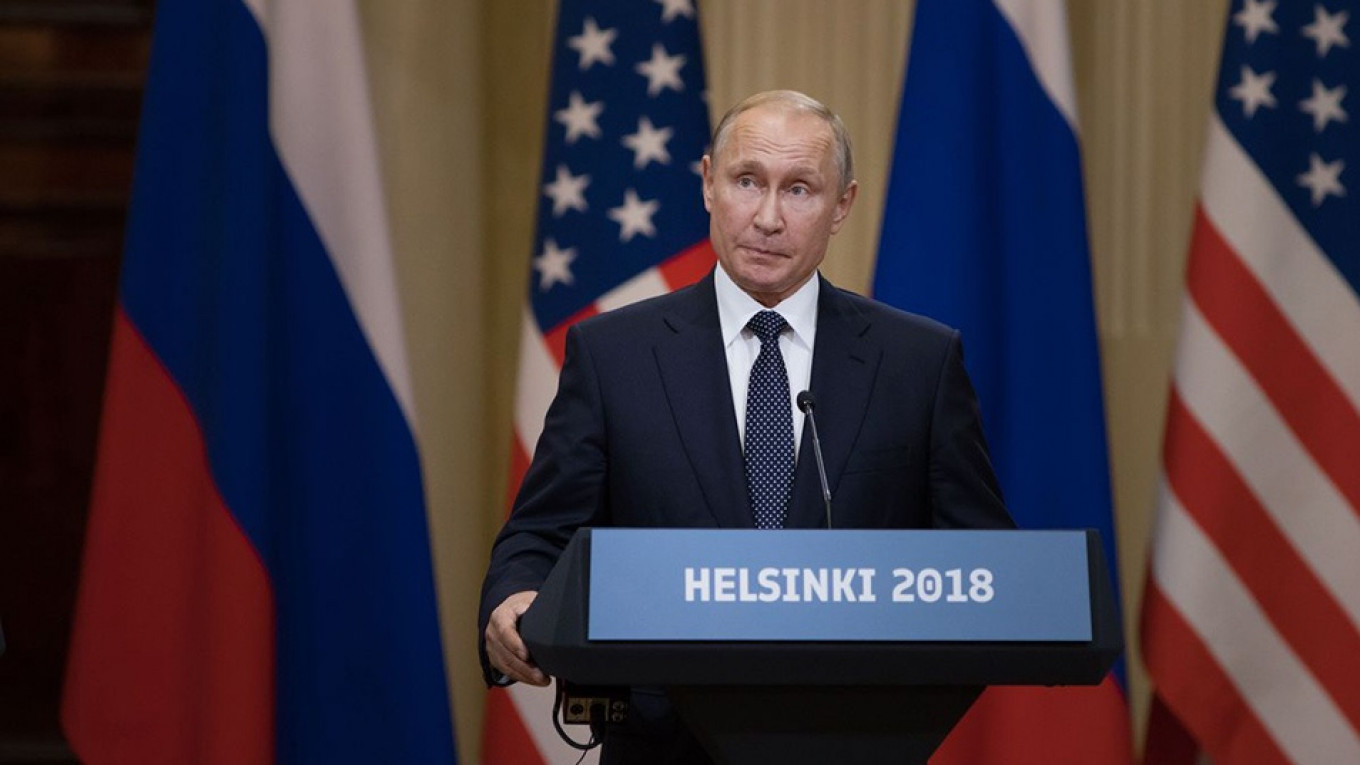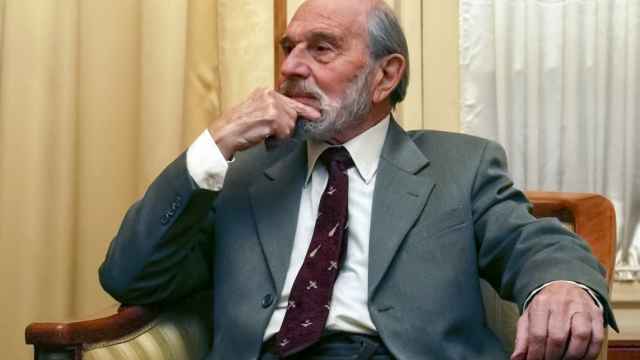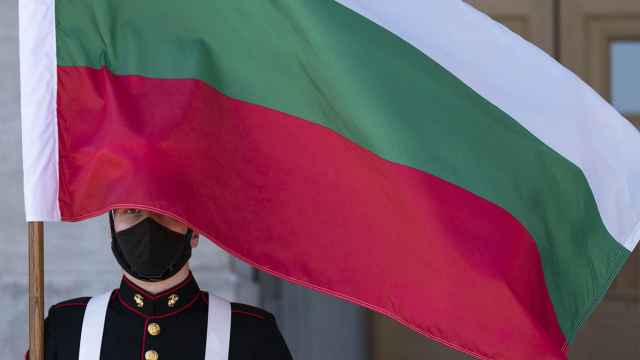U.K. Prime Minister Theresa May’s public accusation that the Russian military intelligence service, known as GRU, carried out the failed assassination of former spy Sergei Skripal is the latest in a series of black eyes for the service.
Russian President Vladimir Putin should be as concerned as Josef Stalin was in the 1930s about the service’s excessive appetite for risk. Another potential cause for worry is the competition among Russian intelligence services, which is disproportionately hurting the GRU.
In a speech to Parliament on Wednesday, May said the two perpetrators of the March attempt to poison Skripal and his daughter with a military-grade chemical agent, named by police as Alexander Petrov and Ruslan Boshirov, were GRU officers. “The GRU is a highly disciplined organization with a well-established chain of command. So this was not a rogue operation,” she said. “The actions of the GRU are a threat to all our allies and to all our citizens.”
Strictly speaking, the GRU doesn’t exist, at least under that name. The abbreviation stands for Chief Intelligence Directorate of the Russian Military’s General Staff, but the service was renamed simply the Chief Directorate in 2010. The old name is still used for convenience, however, both in Russia and in the West.
Twelve GRU officers are named in Special Counsel Robert Mueller’s indictment pertaining to the hacking of the Democratic National Committee and the Hillary Clinton campaign in 2016. A GRU officer has been linked to the downing of a Malaysian passenger airliner over eastern Ukraine in 2014. GRU officers were tied to an alleged coup attempt in Montenegro the same year. It’s not surprising the intelligence service is being blamed for the Skripal operation as Skripal himself once was one of its spies in the U.K.
All of these operations have been complete or qualified failures that have hurt the Kremlin’s interests more than they promoted them. Skripal and his daughter survived, though a British woman who accidentally handled the chemical meant to kill them didn’t. Montenegro joined the North Atlantic Treaty Organization, something Russia fought hard to prevent. The accidental downing of the plane resulted in tougher sanctions on Russia and made it impossible for Western governments to make any kind of deal with Putin on eastern Ukraine. The hacks may have played some role in Clinton’s 2016 defeat, an outcome Putin surely welcomed, but Mueller’s ability to pin the intrusions on specific GRU officers ruined the Russian president’s official version that “patriotic hackers” acting on their own may have meddled in the U.S. election.
By comparison, the other two Russian intelligence services that work overseas, the SVR and the FSB, have spotless records.
Although no GRU officers have actually been arrested as a result of the failures, the string of mishaps resembles — at least in scale — the GRU’s nightmare period from the late 1920s to the mid-1930s. During those years, European intelligence services rolled up one GRU-run spy network after another. A 1934 bust in France led to this report from security chief Genrikh Yagoda to Stalin:
A thorough investigation of the causes of the failures that led to the roll-up of the biggest stations showed that all of them follow from a contamination with traitors; the selection of foreign assets from among elements with questionable histories and ties; a disregard for tradecraft; insufficient control over foreign work.
Stalin attempted to reorganize and strengthen the military intelligence service, but another major bust, in Copenhagen in 1935, seriously weakened the GRU’s German operations and destroyed the career of Janis Berzins, the Soviet intelligence legend who headed the service and is considered one of its founders. He was sent to advise the Spanish Republicans on military matters, then recalled to Moscow in 1937 and shot soon afterward.
Putin, of course, isn’t Stalin, and there will be no such reprisals against the current GRU command. But the problems described in the Yagoda report strike a chord. In Ukraine and Montenegro, the GRU has worked with unreliable underworld and nationalist elements. Its tradecraft has been inferior, since both U.K. and U.S. intelligence have been able to link its officers to specific operations Russia has officially denied conducting. And there is clearly “insufficient control”: Like in the 1920s and 1930s, when Berzins expanded foreign operations, the GRU appears to relish risk-taking, rushing into situations where it’s easier to make a mess than to win.
Then there’s the matter of traitors. The Mueller indictment, and likely the British attribution of the Skripal murder, would have been difficult without well-placed sources in Moscow. These assets could be both within the GRU and the competing services, in particular the FSB, which performs a counterintelligence function and knows about GRU officers’ activities. Reports indicate that FSB Colonel Sergei Mikhailov, arrested in December 2016 on treason charges, may have led U.S. intelligence to the DNC hackers.
If, like Stalin in 1934, Putin is interested in deniability, he’s not getting it with the swashbuckling GRU. It’s possible, of course, that the Russian president’s real interest is in enhancing his reputation as a fearsome enemy. May told Parliament on Wednesday that she thought the Skripal poisoning was meant to send a message to other Russians in London that they weren’t safe. If so, Putin should be fine with the publicity the military intelligence service is getting — but only up to a point. The GRU, after all, is not publicity-oriented, and the scandals are undermining its usefulness in real intelligence work by drawing the attention of Western adversaries. May, for one, has promised to “step up our collective efforts, specifically against the GRU.”
Leonid Bershidsky is a Bloomberg Opinion columnist covering European politics and business. He was the founding editor of the Russian business daily Vedomosti and founded the opinion website Slon.ru. The views and opinions expressed in opinion pieces do not necessarily reflect the position of The Moscow Times.
A Message from The Moscow Times:
Dear readers,
We are facing unprecedented challenges. Russia's Prosecutor General's Office has designated The Moscow Times as an "undesirable" organization, criminalizing our work and putting our staff at risk of prosecution. This follows our earlier unjust labeling as a "foreign agent."
These actions are direct attempts to silence independent journalism in Russia. The authorities claim our work "discredits the decisions of the Russian leadership." We see things differently: we strive to provide accurate, unbiased reporting on Russia.
We, the journalists of The Moscow Times, refuse to be silenced. But to continue our work, we need your help.
Your support, no matter how small, makes a world of difference. If you can, please support us monthly starting from just $2. It's quick to set up, and every contribution makes a significant impact.
By supporting The Moscow Times, you're defending open, independent journalism in the face of repression. Thank you for standing with us.
Remind me later.








